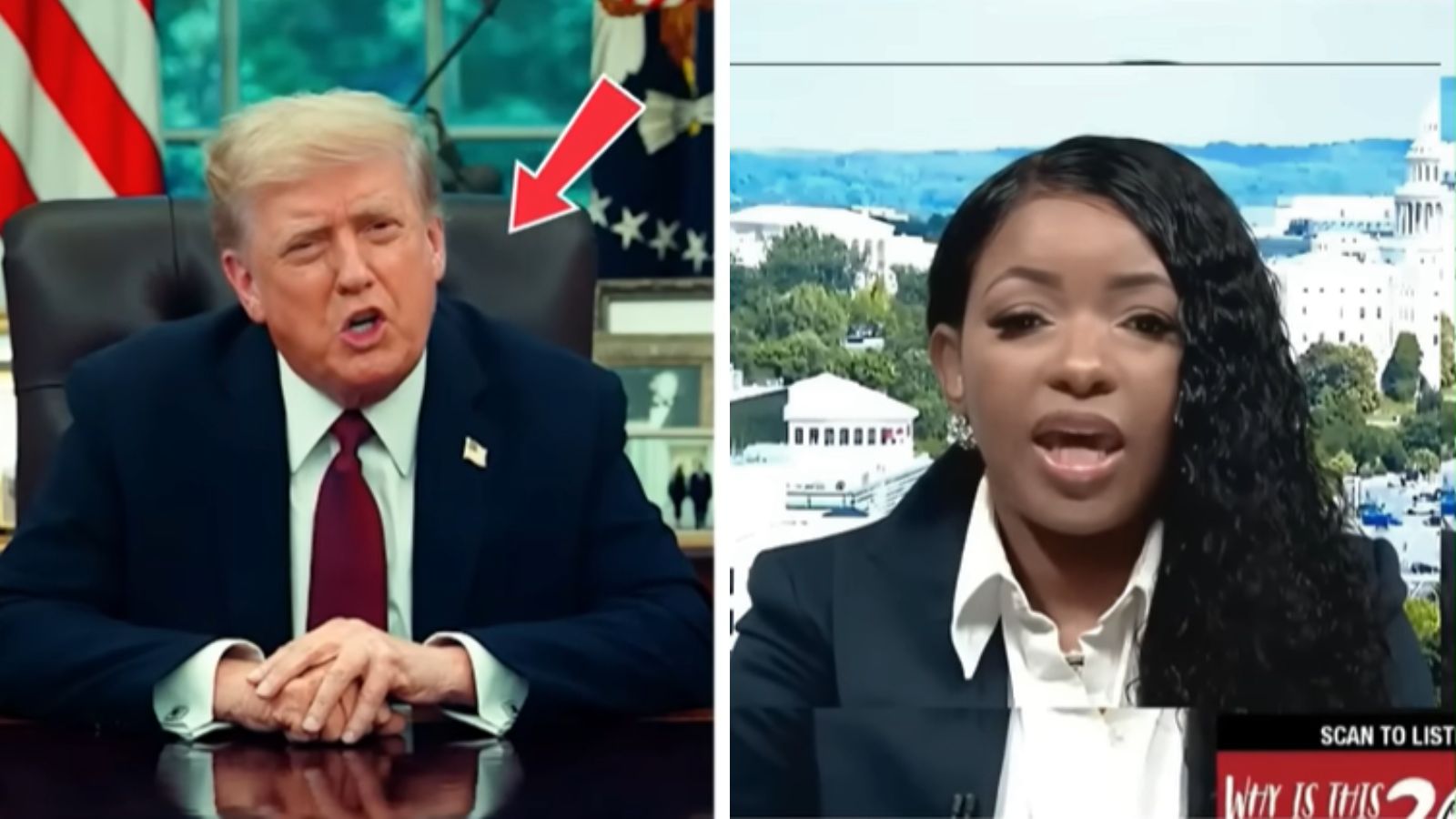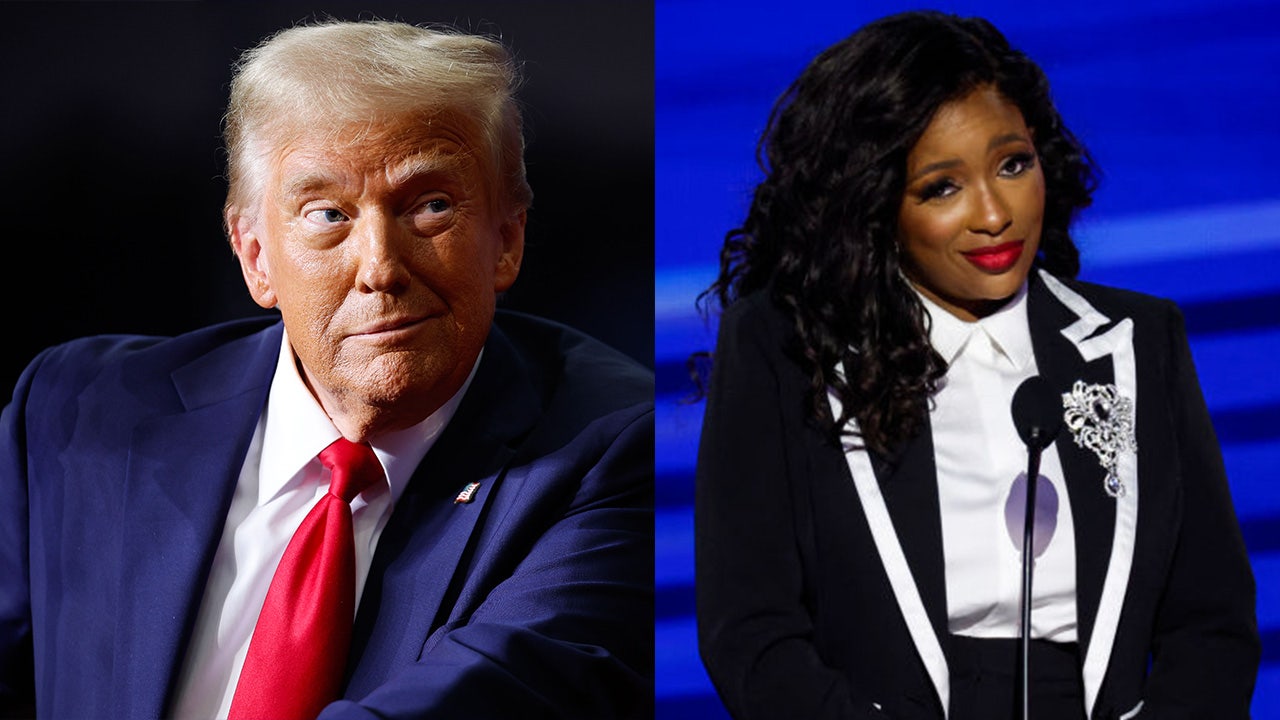In a stunning and shocking revelation that threatens to undermine Donald Trump’s carefully cultivated image as a ‘very stable genius,’ Congresswoman Jasmine Crockett unveiled the former president’s SAT scores from 1965, revealing he barely scraped by with a score of 970 out of 1,600. This bombshell exposes profound hypocrisy and marks a seismic shift in how Trump is perceived, shattering the façade of intellectual superiority he has long presented to the American public.

For decades, Trump has positioned himself as the embodiment of intelligence and success, routinely belittling highly educated individuals, particularly those from elite institutions like Harvard, dubbing them overrated and often declaring that they were intellectually inferior to him. His boasts of acumen have been fervent and unwavering, painting a self-portrayal not only as a savvy businessman but also as a prominent political figure endowed with exceptional capability. “I am a very stable genius,” he has stated time and again, bolstering his narrative with claims that his intuition and instincts alone led to his prosperity.
But amid the cacophony of Trump’s bravado and the discrediting of his critics, the revelation of his SAT score has cast an ominous shadow over his claims. The score, which falls below the national average for the time, is not merely a number—it is an indictment of the very narrative Trump has perpetuated throughout his life and career. It raises serious questions regarding his competency and the authenticity of his intellectual prowess.

Crockett’s announcement not only shocked the audience but also offered a poignant critique of Trump’s historical condescension toward educated individuals. “Mr. Trump, you’ve mocked educated Americans for years, but your own scores are a stark reminder of the truth,” she stated during a recent address. “What are we to think of a president who consistently demeans our nation’s top scholars while only being one bubble away from failing himself?” This sharp commentary has reverberated through social media platforms, igniting a firestorm of memes and hashtags mocking the former president and pushing “Barely Passed Trump” to trending status.
This revelation resonates not just because it’s sensational, but because it disrupts the meticulously tailored persona Trump has built over decades. The implications of a below-average SAT score ripple through Trump’s entire narrative about himself, revealing his educational shortcomings at a pivotal moment in his life where so much opportunity was at stake. In 1965, standardized testing, particularly the SAT, represented a critical key to unlocking pathways toward higher education—a matter of discipline, determination, and academic competence. Yet, Trump’s score calls into question the very foundation upon which he stands.

Underneath the shock and outrage lies a deeper reflection on Trump’s history of academic achievements—or lack thereof. Former Trump attorney Michael Cohen previously suggested that Trump had employed dubious tactics to secure his position, saying he had engaged in outright deception about his academic capabilities. Cohen’s allegations, now corroborated by the disclosure of such a disappointing score, lend credibility to the idea that Trump’s achievements may be less the result of intellect or hard work and more a product of privilege and manipulation.
Nevertheless, Trump’s supporters have rushed to his defense, suggesting that standardized tests cannot encapsulate an individual’s full potential. This argument, however, appears disingenuous in light of Trump’s persistent proclamations about his own intelligence relative to others. Trump’s history is riddled with assertions that he is far superior, not only in wealth and success but also in brainpower—he’s the one who demanded transparency from others about their records while concealing his own numbers.

Crockett’s words poignantly reflect this contradiction: “When you judge others by standards you yourself failed to meet, it is not confidence; it is outright deception.” This moment is not merely a slap at Trump’s ego; it unravels his self-constructed mythos built on superiority and brilliance while contrasting sharply with the stark reality of his academic history.
The response from the public has been vehement and swift. Late-night comedy shows, political analysts, and a multitude of social media users have eagerly seized the opportunity to highlight the absurdity of a man who has mocked academic rigor himself, now standing exposed with records surpassed by the very individuals he derided. Numerous political commentators have signaled that from this point onward, Trump will have to contend with the emblematic phrase “970 out of 1,600” trailing behind him in debates, op-eds, and campaign ads.

The broader political landscape has also shifted in light of this revelation. With intelligence being a formidable weapon in Trump’s rhetorical arsenal, wielded to dismiss rivals as dullards or unqualified, the disclosure of his SAT scores strips away this tool. Opponents can now simply refer back to the numbers; they carry a gravity that will echo in political discourse for years to come.
Yet perhaps the most compelling aspect of this revelation is how it challenges the very core of Trump’s worldview—the belief that success is synonymous with superiority and that superiority equates to intelligence and capability. The truth is far more complex. Genuine intellect is demonstrated not in self-aggrandizement but rather in humility, the pursuit of knowledge, and the respect for learning—all characteristics Trump has conspicuously lacked.
As the political fallout continues to unfold, one thing is certain: the revelation of Donald Trump’s SAT scores has exposed a chasm between who he claims to be and who he truly is. This moment serves as a sobering reminder that self-deceit and hyperbole can only mask truth for so long. The mask of genius is officially off. This pivotal occasion serves to illuminate the fact that true intelligence comes not just from achieving a score on a test, but in demonstrating integrity, sincerity, and a genuine respect for the struggle and journey of education. The implications of this revelation will reverberate throughout Trump’s future endeavors, political landscape, and the collective memory of the nation for years to come.





